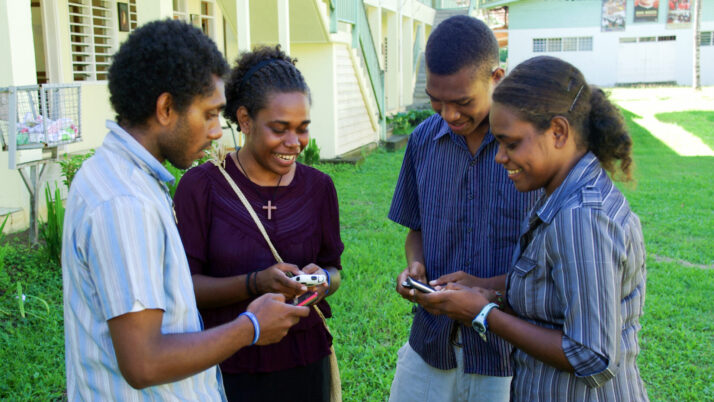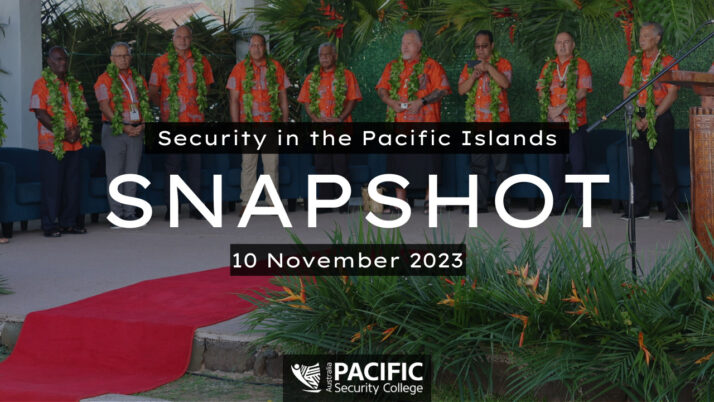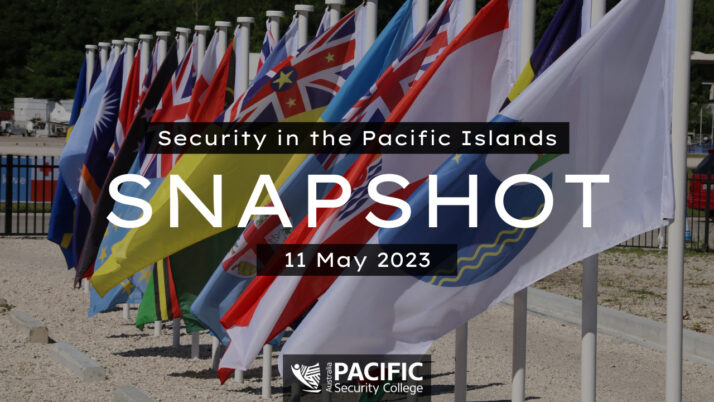How young people are reshaping the Pacific’s digital landscape

Photo: Irene Scott / DFAT
Young Internet users in Papua New Guinea and Fiji are rapidly reshaping their country’s digital environment, but policymakers must do more to ensure online spaces are equitable and can provide trusted information, Jope Tarai writes.
Young people across the Pacific Island region have driven the rapid uptake of digital technologies, particularly the use of social media.
In Papua New Guinea (PNG) and Fiji, two of the region’s largest countries by population, young people aged 12-30 (PNG) and 15-35 (Fiji) make up 62 per cent and 53 per cent, respectively, of total Internet users.
Youth populations in the region have exploded in recent decades, in what scholars have described as the Pacific’s ‘youth bulge’. However, to get a more complete picture of the digital landscape in both countries, it’s important to consider a variety of intersectional factors, such as gender.
Audience insights from Meta, the owners of Facebook, Instagram, and WhatsApp, demonstrates that young men outnumber women on Facebook in PNG 62 per cent to 38 per cent. A likely reason for this is that men in PNG have far greater access to disposable income than women, and that gendered power dynamics make it more likely that men will exert control over the few mobile devices in a household.
By comparison, Fijian Facebook usage is more evenly distributed, with a roughly 50-50 split down gender lines in the country. For Fiji, this does not necessarily reflect greater societal parity, but rather an implication of increasing affordability of and access to devices and the Internet.
The type of content that’s popular in each country is also revealing.
In PNG, entertainment pages such as KabbageGang – which posts comedic videos and memes – are extremely popular. This is followed by sports pages such as the Australian National Rugby League (NRL) and Pasifika Rugby League. The prominence of rugby league pages represents the popularity of the sport in PNG, and provides further indication of the country’s gendered digital landscape.
In contrast, mainstream media outlets such as the Fiji Sun and the Fijian Broadcasting Corporation constitute half of the top 10 most popular pages used on Facebook in Fiji.
This underscores the important role that traditional media serves in the country, especially at a time when more people are turning to social media for their news and information.
Traditional media has far less of a foothold within PNG. EMTV Online, the Facebook page of the popular EMTV free-to-air television broadcaster, is one of the few traditional media Facebook pages that is popular amongst the country’s youth.
The only other news or media page that is ranked in the top 10 is the Chinese state-controlled Xinhua News page. Considering the escalating geo-strategic competition in the Pacific Island region, the prominence of China’s Xinhua News is worthy of further inquiry.
Does this mean that Xinhua News is growing in its popularity among PNG’s youth? If so, why?
And was this organic or a deliberate strategy on the part of Xinhua, especially in the context of the recent national election?
Answering these questions requires deeper ethnographic research of the Pacific’s digital environment, particularly as the region becomes more interconnected and contested.
As the region’s geo-strategic climate becomes ever more competitive, the battle for hearts and minds could now become the battle for attention online. As such, policymakers must be aware of the ways actors both within and outside of the state will seek to utilise this new digital environment to their own ends.
The emergence of a thriving digital culture is a great opportunity, but it must be managed properly to ensure a safe, trusted, and equitable digital environment across the region.
Jope Tarai
This piece was first published on Policy Forum.
More Stories

Security Snapshot - 10 Nov 2023
Pacific Security Snapshot | 10 November 2023
The security stories shaping the region 52nd Pacific Islands Forum Leaders’ Meeting in Cook Islands The South Pacific Connect Initiative Australia-United States commitments to Pacific finance and infrastructure Lowy Institute 2023 Pacific Aid Map Tropical Cyclone Lola hits Vanuatu and Solomon Islands Parties to the Nauru Agreement endorse the Kirimati Communique Tonga prepares for El…

Security Snapshot - 11 May 2023
Pacific Security Snapshot | 11 May 2023
The security stories shaping the region ➣ Australia announces Pacific support package ➣ United States President Joe Biden to visit the Pacific ➣ Embassy of the United States opens in Tonga ➣ Chinese Special Envoy for the Pacific visits Samoa ➣ 14th Pacific Heads of Health meeting in Fiji ➣ Violence in Papua New Guinea’s Porgera…






